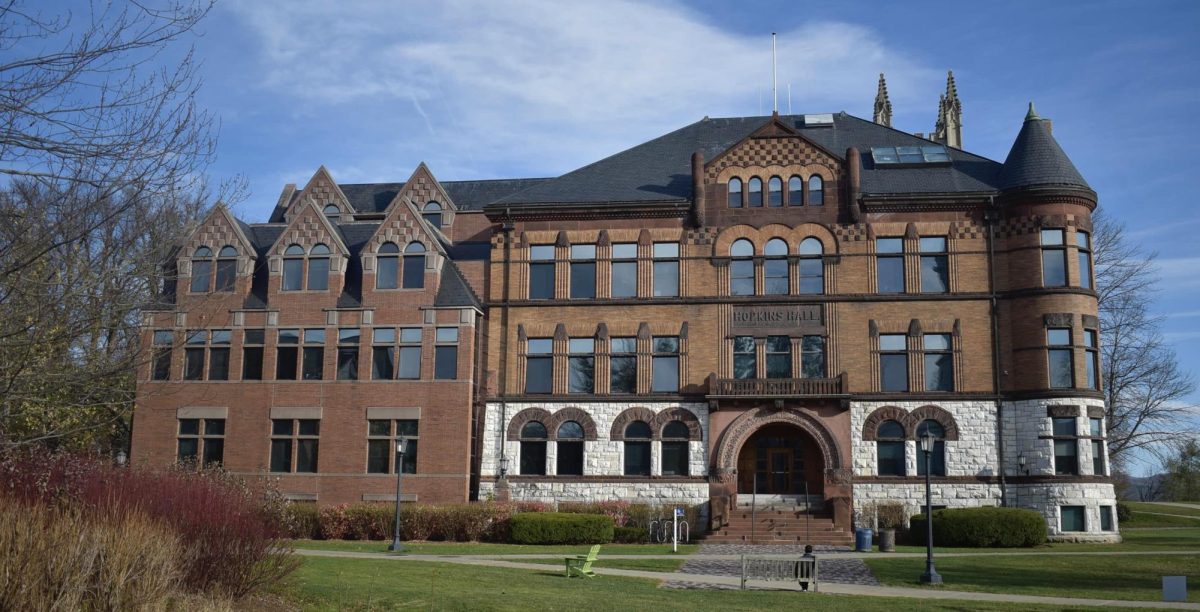Chaplain’s Corner: Being like the Earth
February 15, 2023
What is the best way to be a friend? Or a partner? Or a family member?
Often, what comes to mind are things like being present or being a good listener — perhaps performing certain tasks, or being trustworthy and reliable. No doubt, these are all important. But I recently came across an idea that seems to include all of these, and ties them together while also offering an image that we can grow into: being like the earth. While I came across the image in a text that originally describes an ideal spiritual leader, I think it offers helpful lessons for anyone who finds themselves in a relationship with others.
In his collection of teachings, Likutei Moharan, Rebbe Nachman of Breslov, an important Hasidic Jewish teacher who lived in the late 18th and early 19th centuries in Ukraine, suggests that what distinguishes a true spiritual leader is that they act like the dust of the earth (1:70). This idea may be a bit counterintuitive — after all, we often think of spiritual leaders as elevated or lofty, perhaps charismatic or especially brilliant. However, Rebbe Nachman suggests that while they may have these qualities, what is most important is that they be like the earth.
The earth is the source of all growing things, providing a place for roots to sink down. It is the ground from which things grow, and it holds the nutrients that enable development. Moreover, due to the force of gravity, whenever anything is cast up into the air, it will inevitably be drawn back down to the earth. As Rebbe Nachman suggests, all things are drawn to the earth — not only rocks, leaves, and snow, but also living creatures and people. If we simply care to notice, there is a force drawing us toward the earth. We may not notice it most of the time. We may, at times, be subject to forces pulling us away from the earth. But inevitably, we are eventually drawn back to it. The earth and its dust do not make themselves large; in fact, we often use the metaphor of dust to describe someone who makes themselves small. It is the force that creates space for other things, while it holds, supports, and nourishes them. That is how the ideal spiritual teacher occupies space in the world, like the dust of the earth: holding, supporting, and nurturing others with their gentle, expansive presence.
Technically, in this teaching, Rebbe Nachman was speaking about himself. Regardless, I think this image offers us important guidance, as we seek to show up as our best selves in our relationships. That is to be like the earth.
How might we do that? We do that by creating space for others. By allowing them to be themselves. Like the earth that provides the ground upon which we stand, we can look into the face and the eyes of the other, and seek to be open, grounded, and allow them to be fully themselves. We can listen, paying attention to the words that our friends and roommates utter, to their body language, and also be attentive to the ways in which their own inner guidance moves through them. We can give them the space and the support that they need, so that they can flourish in their own way. And we can ask those around us to be that for us as well. We can and should invite those around us to be the earth for us, so that we might also grow and expand in the ways that we hope to. Because being like the earth means not being defensive or reactive, but rather, allowing freshness and new possibilities to arise.
There is, of course, a dark side to being like the earth. It may lead us to silence ourselves, to give others the impression that we can be tread underfoot or that we wish to be taken advantage of. But if we can strengthen our capacity to be grounded and hold firmly to our worth and to our value, if we can remember that being like the earth is, at its most basic, about grounding ourselves in our inner strength and essential nature, we can offer a powerful gift to others in our ability to be life-giving earth to them. By offering connection to each other, we may offer new possibilities. At the same time, as we nourish those around us, we may in turn nourish ourselves.
When we make space in our hearts for others, we create conditions for growth. Rebbe Nachman thought that the ideal spiritual leader was so grounded and so expansive that they could create space for everyone in the world. This would enable all beings to become the fullest, truest, and most compassionate version of themselves. Such a leader may or may not exist, but I would like to think that each one of us might be able to serve this role for the people in our lives. And then perhaps we can allow all of us together to flourish.
Rabbi Seth Wax is the College’s Jewish Chaplain.







